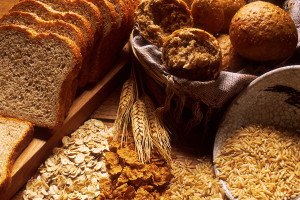New evidence indicates that increasing dietary fibre intake, especially grains, could lower the risk of developing diabetes.

The research has shown that consuming more than 26 grams of dietary fibre a day could decrease your risk of developing diabetes by 18 per cent compared with having less than 19 grams a day.
Dietary fibre could primarily help people to maintain a healthy weight which could indirectly reduce the chance of developing diabetes explained Imperial College London researcher Dagfinn Aune in a press release.
“Taken together, our results indicate that individuals with diets rich in fibre, in particular cereal fibre, may be at lower risk of type 2 diabetes. We are not certain why this might be, but potential mechanisms could include feeling physically full for longer, prolonged release of hormonal signals, slowed down nutrient absorption, or altered fermentation in the large intestine. All these mechanisms could lead to a lower BMI and reduced risk of developing type 2 diabetes.”
This research was published in Diabetologia (the journal of the European Association for the Study of Diabetes) on Tuesday.
Our colleagues at the UK Science Media Centre have gathered the following expert commentary on the research.
Prof Naveed Sattar, Professor of Metabolic Medicine, University of Glasgow, comments:
“This very large and powerful study provides yet more evidence for a potential link between higher fibre intake and lower risk of diabetes but it adds a twist to the evidence – namely, that higher fibre intake seemed to be associated with lower body mass. In other words, eating more fibre may help lower diabetes risk by helping individuals keep their weight in check. But is the evidence strong enough to inform public health? The nature of the evidence cannot prove a cause and effect link since many folk who eat more fibre may also have other health behaviours which favour lower risk and it is impossible to fully measure and thus correct for such behaviours – thus, what we need now are trials testing the effect of high fibre interventions on aspects of diabetes and obesity risk. Trials are the gold standard in evidence and these are hard to do in the nutrition field but we must do them. The nutrition field is full of associations but limited by high quality trials. It needs to up its game now – more nutritional researchers should be encouraged to conduct randomised trials especially where evidence suggesting a potentially favourable effect is so strong, as is now the case for fibre.”
Declared interests
Prof Naveed Sattar: “I am collaborating with UCL to try to fund pilot trials. I was academic editor for this paper for the journal.”